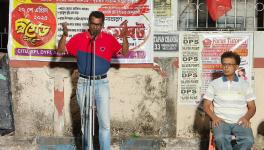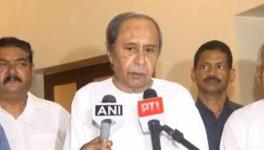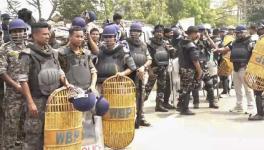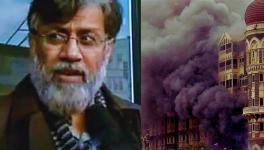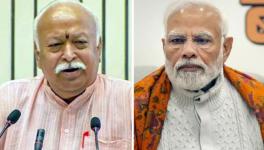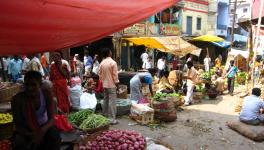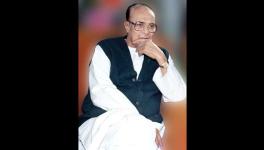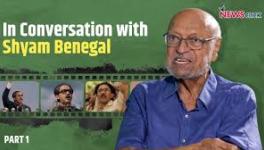After Kashmir, JeI leaders in Jammu Find Themselves in Hot Waters
Image Coutesy: The Tribune
On the evening of March 1, 2019, 70-year-old retired veterinary doctor Mohammad Iqbal Malik’s house was searched by the police in Kishtwar district of Jammu region. After hours of raid, a passport, diary and bank passbook were seized for scrutiny, and he was arrested without any evidence. Not just Malik, two other prominent leaders, Mohammad Majeed Sheikh and Ghulam Qadir Bhat, of the recently banned Jamaat-e-Islami (JeI) were arrested and their assets were sealed during day-long raids in and around six districts of Jammu province.
Reportedly, several raids were conducted on the offices and houses of JeI leaders and activists in Kishtwar, Doda, Ramban, Poonch, Rajouri and other Jammu districts.
A police officer was quoted by PTI as saying, “At least six bank accounts linked to the group have been identified and the banks concerned are directed to immediately seal them.” Malik and two others, were bailed out the night before last but remain apprehensive of their future. As per the reports, two more Jamaat activists were detained from Doda district but were later released after questioning.
Also Read: Schools, Homes Sealed, Charity Work Stopped, as Govt Enforces Ban on Jamaat
Speaking to NewsClick, Malik’s cousin, who wished to remain anonymous, said, “Malik has been associated with Jamaat for years and he has worked for the people. His arrest was uncalled for. How can they arrest without any evidence or criminal charges against him? The diary they took from his house included the details of family ration. Does that amount to incriminating evidence? Also, the arrest was planned. There was no judge, so they had already planned that they will put him in jail for 3-4 days, until we do something to bail him out. He is shaken after this incident.”
Malik is the care taker of Yateem Trust (Orphan Trust) where orphans are given a shelter, food and place to live in. His cousin said, “Three years ago, Malik opened Yateem Trust where he took care of orphans and helped them study. Now, the police have put the trust under the scanner and have said that they will talk to children and check what all happens there.”
During the 2014 disastrous flood in Kashmir, Malik was the one, who collected contributions from different corners of Kishtwar to help the people. “He had collected clothes, money and whatever more he could manage for the people stuck in the flood. He stayed in Kashmir for 20 days and helped people there. It is unfortunate that such people are being targeted and maligned,” his cousin said.
The spate of arrests and sealing came after a notice was issued by the Ministry of Home Affairs, banning JeI in the state of Jammu and Kashmir. The notification stated that the centre government is of the opinion that, “JeI is in close touch with militant outfits and is supporting extremism and militancy in Jammu and Kashmir and elsewhere.” It further underlined that, “JeI is involved in anti-national and subversive activities in the country intended to cause disaffection.”
The vice president of state Congress and Former minister GM Saroori has shown his resentment over Jamaat ban. “Jamaat is not a terrorist organisation... It is running over 300 schools in the state for six decades and providing employment to thousands of educated youth,” Saroori was quoted by PTI.
BJP Leader Makes Controversial Statement
Meanwhile, on Wednesday, March 6, a controversial statement made by a senior BJP leader Kavinder Gupta invited backlash from the regional political parties and locals in Kashmir. In his statement, Gupta had said, “Madrassas are the places where militants are born.”
As the statement by Gupta became public, National Conference Vice President and former Chief Minister, Omar Abdullah tweeted, “And RSS shakhas produce ill-informed bigots like Gupta here.” A local, wishing anonymity told NewsClick, “The statement by BJP’s Kavinder Gupta is problematic and has amplified anger amongst us. We see his statement as a warning that soon they will say that Islam as a religion produces terrorists, so let’s ban Islam and kick Kashmiri and Muslims out. The ban on Jamaat is an assault on our religious practice. It’s an assault on Islam. And such statements just add to our opposition to the state.”
Also Read: Will the Ban Turn out to Be Helpful for Jamaat?
On Wednesday, People’s Democratic Party supremo Mehbooba Mufti held the first political rally in South Kashmir on the Jamaat ban issue, where hundreds of PDP members demanded a “revocation of Jamaat ban.”
However, this is not the first time that JeI has been banned in Jammu and Kashmir. It was first banned in 1975, during Sheikh Abdullah’s time. The second time it was banned in 1990, at the height of rise of militancy in the state.
Get the latest reports & analysis with people's perspective on Protests, movements & deep analytical videos, discussions of the current affairs in your Telegram app. Subscribe to NewsClick's Telegram channel & get Real-Time updates on stories, as they get published on our website.









